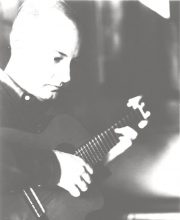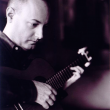Melody and Motion Pictures
By George Mahn, III
If a picture is worth a thousand words, then music is its voice, a voice that carries the power of vision and verse combined. In terms of motion pictures, the role of the film composer is to articulate the plotline, to complete the psychological effect of the drama on screen by providing compelling thematic material most suitable to the harmonic unity of images, dialogue and sound effects, in the end achieving the production teams vision for the script.
As every film critic knows, a musical score is not simply ornamental. It is an instrument of persuasion a fine-tuned means to a specific end. Its merit is to be evaluated in the long run only on performance. Does it effectively carry out the function assigned to it? Is it adapted to its chosen audience, to the climate of its time, to the conditions in which it will be heard to the challenge of competitors?
The melodic form in my work is not based so much on classic formula or complex arrangement as it is coherent expression, since the concept of the score should ultimately reveal the overall arch of the motion picture like a transparent narrator consistently relating plot points and character development. Of course, a good score is not always a narrative, yet it still needs to be sensitive to the plotline in order to be of service to the story and the psychology of the characters on some level.
The audience might not be conscious of it, but the score really affects the way they experience the images on the screen and the story theyre seeing. Although rhythm, melody and timing are visibly inherent to depicting the action, the focus of effective scoring falls on harmony and tone, because that is what really brings out the underlying emotion and power within each cue. Then again, the score cannot be assessed as only a design, a pleasing display of sound and color or simply an aesthetic experience. Instead it must be viewed as a mechanism to deliver a message from an informed perspective, an emotional as well as intelligent response set within a well-structured performance.
When all is said and done, the resulting interpretation is naturally shaped by the composers unique outlook and experience. For myself, I approach film as a fan and an artisan. Ive always had a good sense of story and an instinctive ear for music. In fact, I studied jazz guitar and music theory while earning a degree in literary analysis with minors in creative writing and journalism. Eventually I went on to learn orchestration and film scoring techniques in addition to audio engineering skills. So even though Im not classically trained in composition, Ive essentially evolved into a musical bard with a broad dynamic palette consisting of multiple styles.
I bring this distinctive view of storytelling to the artistic process. I play what I feel and translate that technically to the film. I also seek advice from people while keeping a strong sense of where Im going and then work to maintain that direction. This is where spotting sessions and mockups are critical, because I need to be aware of what people respond to in an emotionally predictable way as well as what the director wants them to feel and say.
The key to achieving quality outcomes on a consistent and regular basis is combining effective communication and a clear sense of dramatic purpose with business minded direction and personal oversight. By understanding the production goals and collaborating with the crew as a creative partner, I am able to fulfill the motion pictures technical needs and the clients service level targets, all the while completing the project timely and within budget.
Through my business management experience I have found that every project has its own set of challenges and the composer must be prepared to balance the demands of multiple situations, ideas and personalities while remaining open to positive criticism. Having had the good fortune of working with incredibly talented musicians and artists, I dont need to be told that my music is great, but a good critic can help me stay in focus. Whats most important is to remember that the story, not the score, is the star.
With this in mind, I not only seek to do my best, but to do what is best for the production. Filmmaking is a team effort and I want to be as helpful as possible. The better each person performs his or her job, the better the principals look, and that only gives the production a greater chance of being successful.
It’s not about good and bad, or talented and untalented. It’s about who can touch people through their music in meaningful ways. -Bob Baker
Simply look with perceptive eyes at the world about you, and trust your own reactions and convictions.
-Ansel Adams
©2007 GWMIII. All Rights Reserved.




